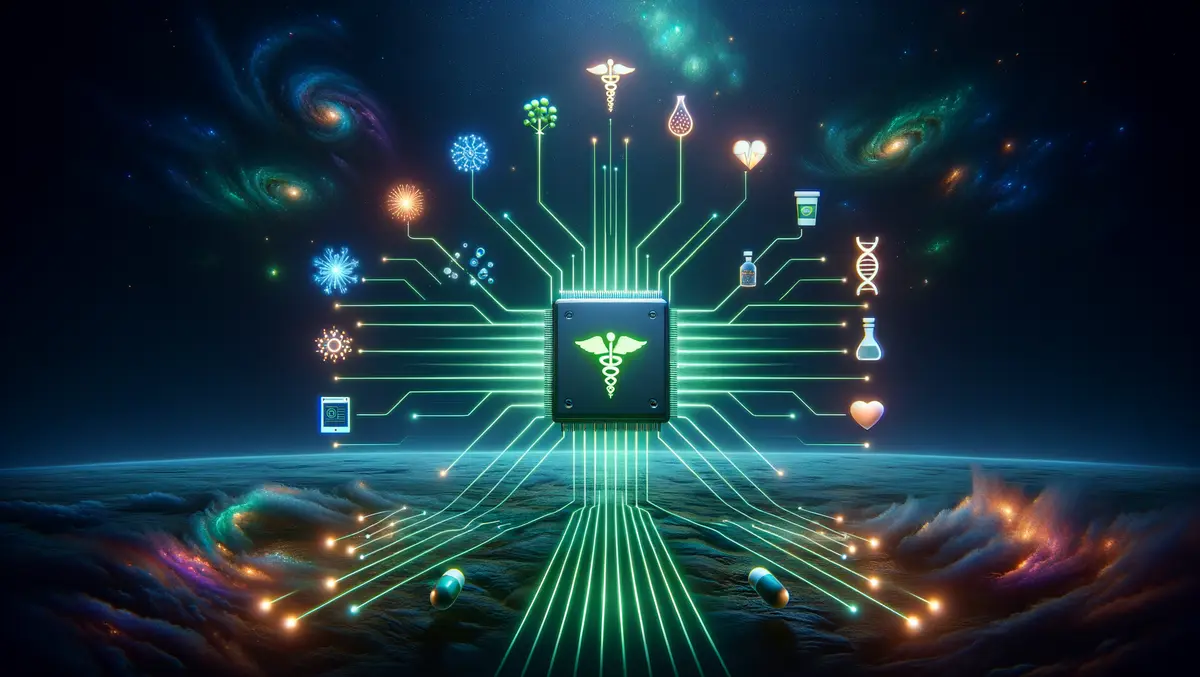
NVIDIA launches 25 new microservices for healthcare AI applications
NVIDIA has announced the launch of more than two dozen new microservices, enabling healthcare enterprises worldwide to leverage the latest advancements in generative AI on any cloud, anywhere. The global tech giant's new suite of healthcare microservices incorporates optimised NVIDIA NIM AI models and workflows along with industry-standard APIs, functioning as building blocks for the development and deployment of cloud-native applications.
The microservices offer advanced imaging, natural language and speech recognition, and digital biology generation, prediction, and simulation. Furthermore, NVIDIA accelerated software development kits and tools including Parabricks, MONAI, NeMo, Riva, and Metropolis can now be accessed as NVIDIA CUDA-X microservices to accelerate healthcare workflows for drug discovery, medical imaging and genomics analysis. The 25 newly launched microservices present an immense opportunity for transformation within healthcare companies through generative AI with potential applications in drug compound screening, early disease detection, and the implementation of smarter digital assistants.
"For the first time in history, we can represent the world of biology and chemistry in a computer, making computer-aided drug discovery possible," declared Kimberly Powell, Vice President of Healthcare at NVIDIA. She further stressed NVIDIA's mission to empower healthcare companies to fully harness the powerful potential of generative AI by facilitating the easy building and management of AI solutions.
The tech firm's new suite includes NVIDIA NIM Healthcare Microservices for Inferencing which provides optimised inference for a variety of models across imaging, medtech, drug discovery, and digital health. The suite also features models for drug discovery, including MolMIM for generative chemistry and DiffDock for understanding the interaction of drug molecules with targets. Other notable NVIDIA features include the VISTA 3D microservice which enhances the creation of 3D segmentation models and the Universal DeepVariant microservice that delivers significant speed improvements for variant calling in genomic analysis workflows.
Leading computational software company, Cadence, is incorporating NVIDIA's BioNeMo microservices into its Orion molecular design platform, used for accelerating drug discovery. Orion enables pharmaceutical company researchers to generate, search and model data libraries with potentially hundreds of billions of compounds. BioNeMo microservices, such as the MolMIM generative chemistry model, substantially augment Orion's design capabilities.
Generative AI is revolutionising patient care. Start-up company Hippocratic AI, for instance, is developing AI Healthcare Agents that use generative AI to perform a range of tasks including scheduling appointments and conducting pre-operative outreach. Munjal Shah, Co-Founder and CEO of Hippocratic AI, emphasised how generative AI can help address critical healthcare industry needs including addressing staffing shortages and enhancing the quality of patient care.
Moreover, Flywheel is utilising NVIDIA's generative AI microservices to power their cloud-based platform which supports biopharma companies, life science organisations, and healthcare providers in the identification, curation and training of medical imaging data. Trent Norris, Chief Product Officer at Flywheel, emphasised the transformational impact this integration has in their capabilities and overall acceleration of medical research and patient care outcomes.
Developers interested in experimenting with NVIDIA AI microservices can utilise the NVIDIA AI Enterprise 5.0 software platform, available via NVIDIA-Certified Systems from providers including Dell Technologies, Hewlett Packard Enterprise, Lenovo and Supermicro, leading public cloud platforms such as Amazon Web Services (AWS), Google Cloud, Microsoft Azure and Oracle Cloud Infrastructure, and on NVIDIA DGX Cloud.


